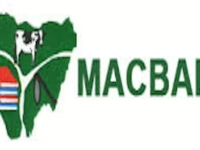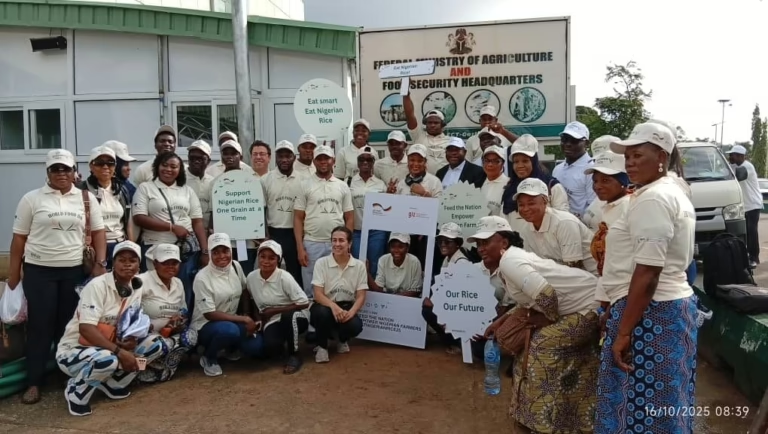On Thursday, Nigerian rice producers, millers, and development stakeholders united in urging citizens to support domestically grown rice as a vital step toward enhancing food security, generating employment, and revitalizing the agricultural sector.
At a ceremony in Abuja commemorating World Food Day 2025, Peter Dama, National Chairman of the Competitive African Rice Forum for Sustainable Development, encouraged Nigerians to favor locally cultivated rice over imported varieties, highlighting the remarkable improvements in quality achieved over recent years.
He emphasized that the “Eat Nigerian Rice” initiative represents a shared pledge to bolster national resilience and economic sovereignty.
Dama pointed out that Nigerian rice now meets competitive benchmarks, with numerous mills nationwide outfitted with state-of-the-art equipment such as destoners, polishers, and color sorters.
He noted that the era when local rice was associated with contaminants has passed, thanks to advancements in technology and enhanced hygiene practices within the industry.
Nonetheless, Dama cautioned that the sector still grapples with significant obstacles that could impede its advancement.
Key challenges include escalating production expenses, soaring fertilizer costs, inadequate irrigation infrastructure, and security concerns in farming regions.
He further explained that exemptions on import duties for foreign rice have undermined the competitiveness of local producers, leaving many farmers struggling to recoup their investments or maintain output.
“Our message is straightforward: we urge Nigerians to consume what we cultivate. Nigerian rice is nutritious, generates employment, and fortifies our food security. The misconception of local rice being impure is outdated. Today’s mills are equipped with polishers, destoners, and color sorters that align with global standards,” Dama stated.
“We continue to appeal to government authorities to lower fertilizer prices, invest in irrigation systems, and eliminate import duty waivers that make imported rice cheaper than ours,” he added. “Farmers have produced ample rice, but high production costs prevent sales. Fertilizer prices alone range from 65,000 to 75,000 naira, making it impossible for farmers to sustain their operations.”
“Historically, rice farming provided livelihoods for many young Nigerians, enabling them to pay school fees, build homes, and support families. However, insecurity, rising costs, and climate issues have reduced production to approximately seven to eight million metric tonnes. We are committed to restoring this capacity and call on Nigerians to support us by choosing Nigerian rice,” Dama urged.
He also called on federal and state governments to bolster the rice value chain by offering affordable credit, subsidized fertilizers, and effective irrigation facilities.
Dama highlighted that access to low-interest loans is crucial, especially given the current commercial lending rate of 27.5 percent, which discourages investment in agriculture.
The “Eat Nigerian Rice” campaign, officially launched in Abuja on Wednesday, is part of the Market-Oriented Value Chains for Jobs and Growth in the ECOWAS Region (MOVE) project. This initiative is funded by the German Federal Ministry for Economic Cooperation and Development (BMZ), co-supported by the Gates Foundation and the European Union (EU), and executed by Deutsche Gesellschaft für Internationale Zusammenarbeit (GIZ) GmbH.
The campaign aims to elevate Nigerian rice as a source of national pride and a catalyst for rural job creation.
Organizers explained that the movement is designed to foster sustainable food production by strengthening value chains, enhancing farmers’ earnings, and motivating consumers to consciously support local agriculture.
Participants at the Abuja event concurred that Nigeria’s rice sector exemplifies the theme of this year’s World Food Day. By opting for local rice, Nigerians contribute to job preservation, environmental protection, and economic empowerment from within the country.
They emphasized that the “Eat Nigerian Rice” campaign is not a temporary effort but a long-term vision to establish local rice as the preferred choice nationwide and a benchmark for quality and sustainability on the global stage.






















